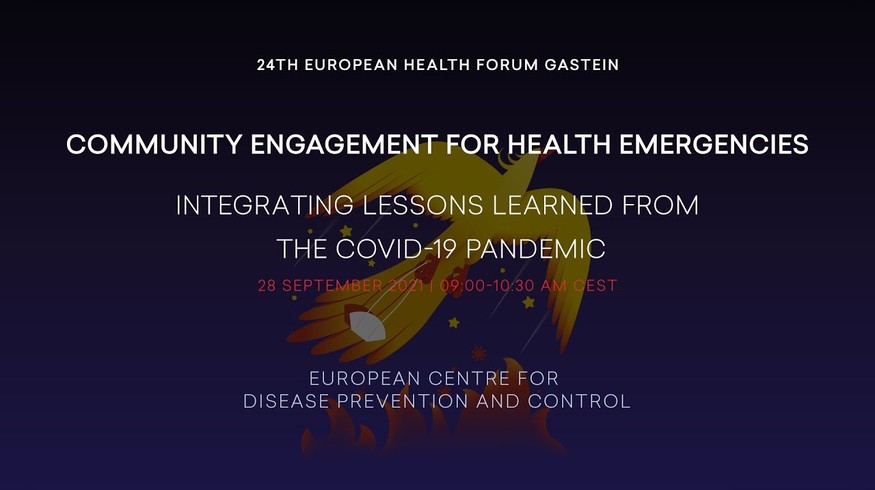Session 5
Community engagement for health emergencies
Integrating lessons learned from the COVID-19 pandemic
Tuesday, 28 September 2021 | 09:00-10:30 | Room 1
Organised by European Centre for Disease Prevention and Control
Communities are increasingly recognised as key partners for outbreak preparedness and response. ‘Communities’ include not only at-risk groups, but also other stakeholders who are linked to these affected populations and who may be able to support the preparedness and response process. Such actors may already exist in the civic or public realm or they may emerge during emergency events in the form of new coalitions.
We have seen during the COVID-19 pandemic that socially vulnerable populations may be disproportionally affected by a public health crisis, and they also are often under-represented in active stakeholder groups responding to the crisis. The principles of community engagement therefore need to be kept at the core, including and in particular for socially vulnerable populations. This requires the involvement of community-based partners in the exchange of risk information, and the development of a trusting foundation for shared decision-making that, in addition to health concerns, necessarily also addresses a range of social, economic, political, and environmental issues.
The ultimate aim of community engagement activities is to facilitate the development of an informed community that – in collaboration with the health and relevant non-health sectors – is empowered to ensure the security and protection of all its members.
Join us in this session to share your experience from the COVID-19 pandemic and envision how civil society and national authorities can work together with communities to address future health emergencies equitably and effectively.
Speakers & panellists
- Andrea Ammon, Director, European Centre for Disease Prevention and Control
- John Kinsman, Expert on Social and Behavioural Change Communication, European Centre for Disease Prevention and Control
- Michael Marmot, Director, The UCL Institute of Health Equity
- Reem Mussa, Humanitarian Advisor on Forced Migration, Medecins sans Frontieres
- Inge Neven, Preventive Medecine & COVID crisis manager for the Brussels Government, La Commission communautaire commune
- Cristiana Oprea, Head of the Clinical Infectious Diseases Department I, Victor Babes Clinical Hospital for Infectious and Tropical Diseases
- Freek Spinnewijn, Director, FEANTSA
Moderated by
- Nick Fahy, Research Group Director, RAND Europe

